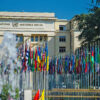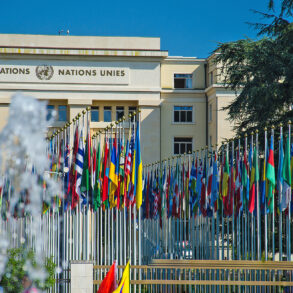Many articles, essays and reports have been written about the U.S’ withdrawal from Afghanistan in particular and the catastrophic misadventure of the Global War on Terror, or to be more precise, the West’s War against Islam. Perhaps we understand the matter different if we can approach this matter by widening our range of historical scope. That is, we should go back in time, further than the day Fukuyama wrote The End of History nor from the time Napoleon became the Emperor of the Franks, nor from the time of the Romans. But to understand the collapse of the West, we should begin from Homer’s Iliad.
Europe’s culture starts with the song of Homer named the Iliad. It is interesting that the song was a recording of the Trojan War. Within the spectacle of war the Song of Homer focuses on Achilleus. As a result of the centrality of Achilleus many who have heard the Song saw Achilleus as the ideal worth emulating. Thereafter, the Olympic games were established to simulate, to a less degree, the image of Achilleus. Boxing and wrestling mirrored hand to hand combact of war, as well as chariot races, horse races, running, all were a reflection of the Acilleus’ original.
According to Aristotle, Greek drama is healthy for the audience because they could experience all the feelings reflected on stage – patricide, matricide, incest, murder and self-mutilation – without having to inact them. These dark feelings are natural and Greek tradegy is a convinient and safe way to give these feelings life. The feelings arisen by Greek dramas – incest, patricide, matricide, grief, honor, freewill vs destiny, pride, love etcetera – were experienced by men during warfare. Both those who watched the actor and athlete experienced the aroma of Achilleus.
When Plato arrived on the scene, things drastically changed. We must remember that In his Republic, Plato wants to banish the poets from his ideal city. Richard Lewis Nettleship writes, “Plato has occasion to criticize the extravagant expressions of grief that appear in Homer, condemning them the more severely since they are put into the mouths of men and even of heroes…This leads up to self-control or temperance, the essence of which is obedience to authority, whether to a ruler, or to the higher self within oneself. Plato treats self-control, first as obedience to persons in authority, secondly as the control of the appetites, thirdly as control of wantoness, insolense, or pride, which is illustrated by the stories of Achilles.“ (Nettleship, p. 99)
“If you look at Plato,” writes Shaykh Abdalqadir As-Sufi, “in the end he writes The Republic. When you look at Aristotle, he writes The Polity. At the end of the day they are setting up what you might call ‘State” The State is not the State based on worship but the State based on the idea that this brain can work out how to do the whole process. We are paying the price because what they want to rationalise, as we have seen, is not to bring mercy and compassion but to bring enormous wealth to an elite by means of subduing everybody else whilst giving it a beautiful name. Take the name from Plato and take the whip from the body-guards.” (as-Sufi, p. 149)
Plato and Aristotle’s ideas, for a longtime, occupied only the contents between the book covers and the fringes of philosophical dialogues in Europe. It was during the Englightment movement which enthroned the human mind as the barometer of creation. Then these ideas were given a political arena. In 1794, the French Republic wished to replace Catholicism with the Cult of Reason, the first state-sponsored secular religion.
Abbot Barruel wrote in his Memories, with respect to the French Revolution: “Three groups characterize the revolution; atheists, encyclopaedists and economists.” Edmund Burke said in his On the French Revolution: “The age of chivalry has gone. An age of sophists, economists and calculators has triumphed and the glory of Europe is extinguished forever.”
The legacy French Revolution is truly far reaching. One of its legacies was the sweeping away of the Achilleus archetype who is generous, courageous and is aware with the Divine sphere – as the ideal hero and replacing him with the anti-thesis, that is, Plato’s ideal. One of the French Revolution’s slogans – equality – posited that anyone, with the best intellect, can rise to the top of the social ladder. Such people can be farmed from the education system. In contrast, the crème of society, according to the Homeric poem, was farmed from the army. Alexander the Great’s principality was divided among his generals.
George Washington embodied to some extent the Achilleus archetype. He became the first American president in large part to his genius in the battle filed against the French. Somewhere between him and Abraham Lincoln, the command of the army and the command of the president were split. During the American Civil War, Ulysses S.Grant took responsibility of the army and Abraham Lincoln remained in office. In Europe, the Führer remained in a bunker whilst his commander was front and centre of the storm of steel. Churchill remained fat whilst his commander in contrast was thin and had a worn-out visage.
The first American President, George Washington, was elected president because of his brilliance on the battlefield. More than two centuries later, his namesake George W. Bush was nothing like his predecessor. He was a graduate of Yale University. And he used his family connections to avoid serving in the Vietnam War.
Bibliography
– Nettleship, r. L. (1951). Lectures on Plato’s Republic (first edition ed.). London: London Macmillan.
– as-Sufi, S. A. (2012). Commentaries. Cape Town: Madinah Press.











